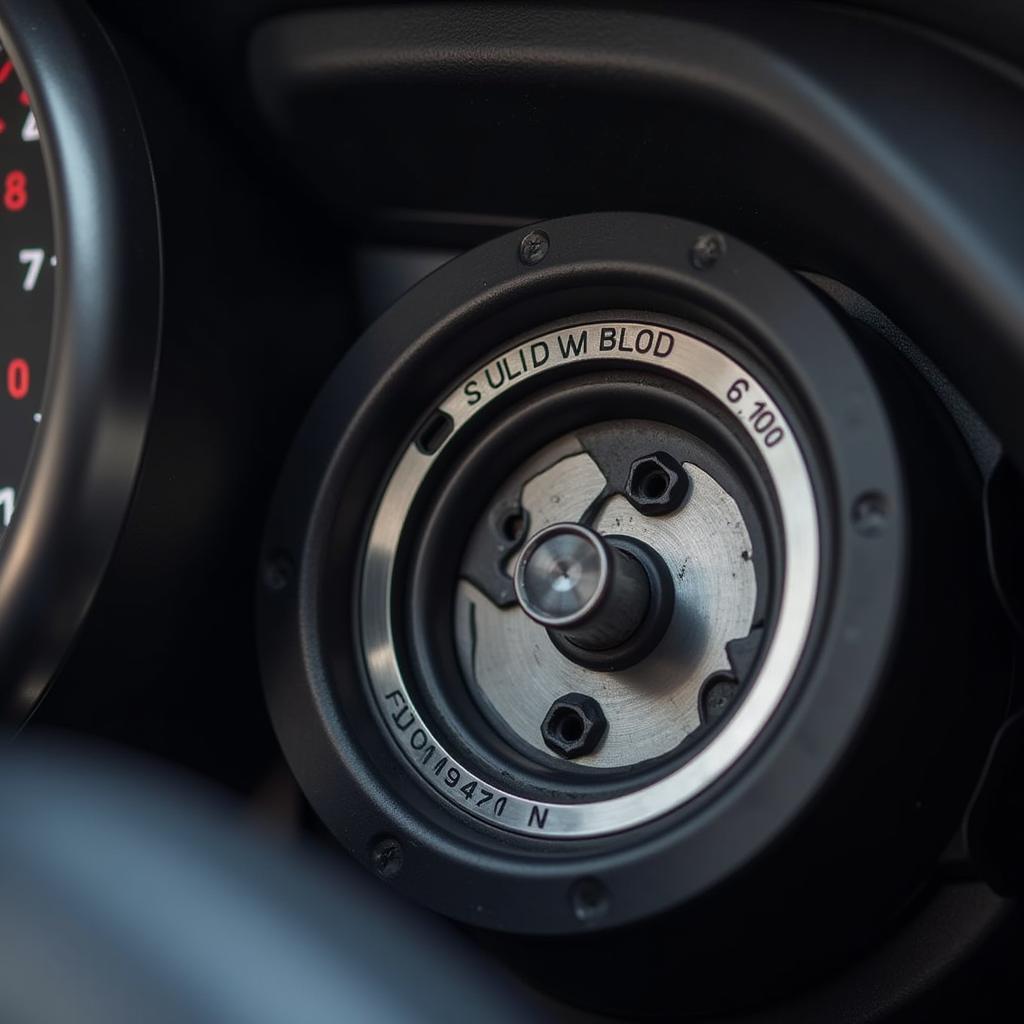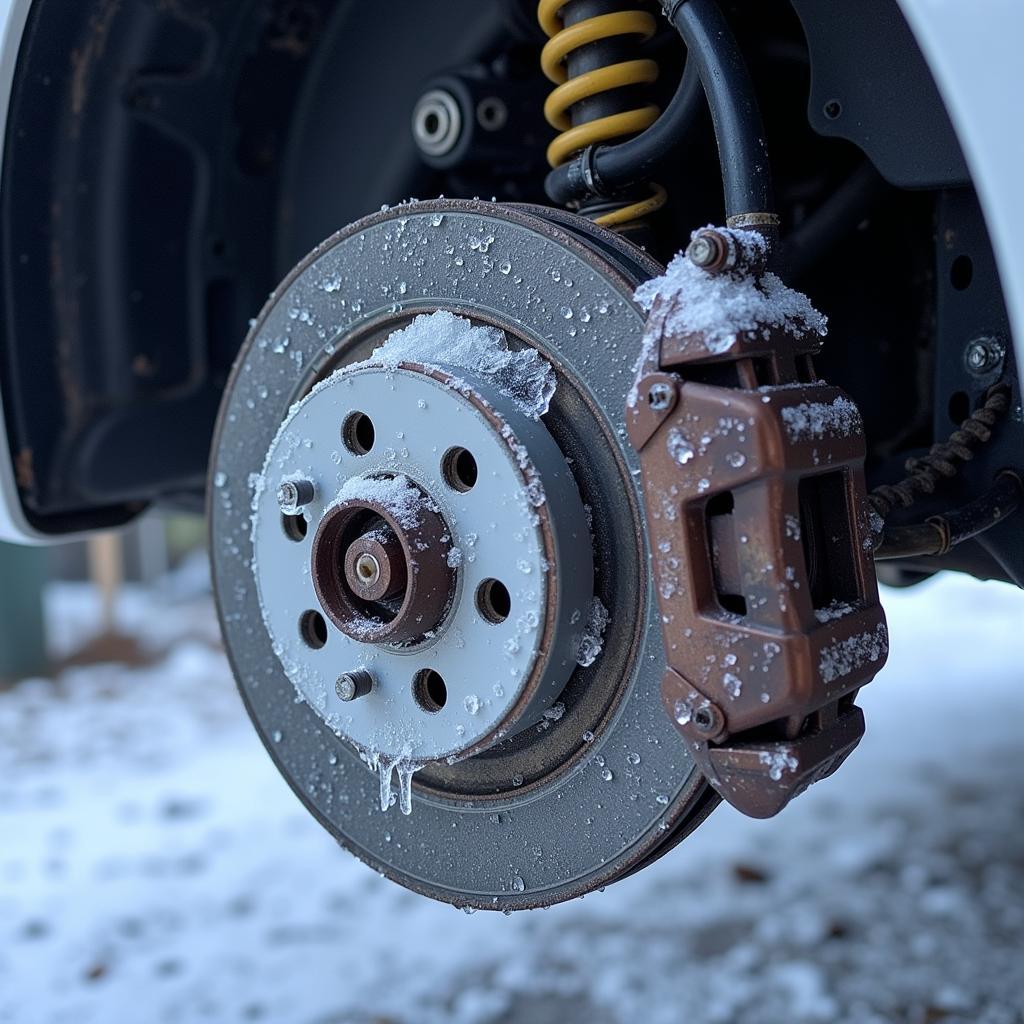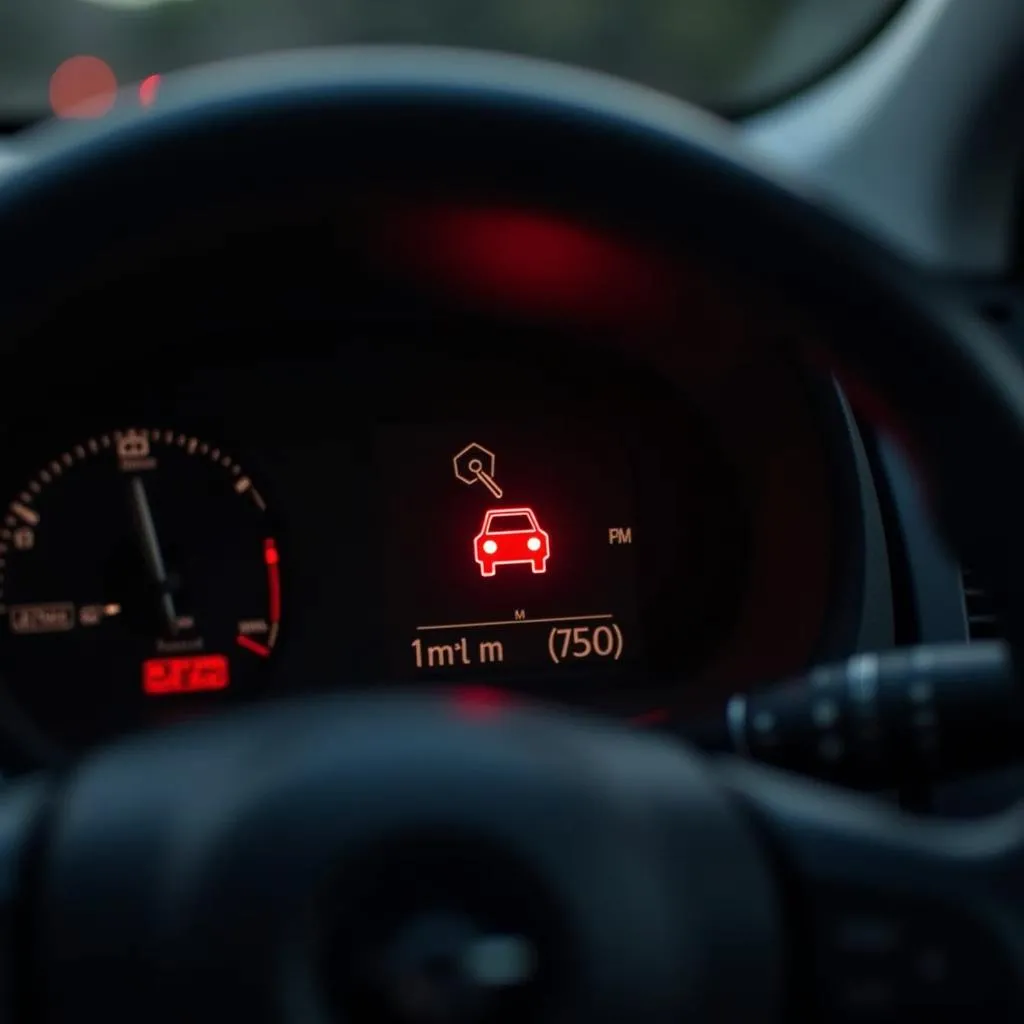You’re driving to work on a chilly morning, and suddenly your brake warning light illuminates on the dashboard. Your heart skips a beat. Is it just the cold weather playing tricks, or is there a serious issue with your brakes? It’s a question many car owners face, especially during those frigid winter months. Let’s dive into the reasons why cold weather might be the culprit behind that glowing red light.
Understanding Your Car’s Brake Warning System
Before we delve into the cold weather connection, it’s crucial to understand what triggers that brake warning light. It’s designed to alert you of potential problems within your braking system. These include:
- Low Brake Fluid: Brake fluid is the lifeblood of your braking system. If the fluid level drops too low, often due to a leak, the warning light will come on.
- Worn Brake Pads: Your brake pads wear down over time. When they reach a certain thinness, a sensor triggers the warning light, indicating it’s time for a replacement.
- Faulty Brake Light Switch: This switch activates your brake lights when you press the pedal. A malfunction can lead to both brake light and warning light issues.
- ABS Problems: If your car has an Anti-lock Braking System (ABS) and there’s a fault, the warning light may illuminate.
 Car Brake Fluid Reservoir
Car Brake Fluid Reservoir
Cold Weather and Your Brakes: A Chilly Relationship
Now, let’s address the chill in the air. While cold weather itself doesn’t directly cause your brake warning light to come on, it can exacerbate existing issues or create conditions that trigger the warning.
1. Brake Fluid Viscosity: Brake fluid, like other fluids, thickens in cold temperatures. This thickening can affect its ability to flow quickly and efficiently through the brake lines, potentially reducing braking performance. In extreme cases, if the fluid becomes too thick, it might trigger a sensor and activate the warning light.
2. Moisture and Freezing: Moisture can accumulate in the brake lines over time. When temperatures plummet, this moisture can freeze and expand, potentially causing blockages or damage to the brake lines. This could lead to a drop in brake fluid pressure, triggering the warning light.
3. Battery Performance: Cold weather can significantly impact your car battery’s performance. A weakened battery might not provide enough power to the car’s electrical system, including the sensors in the braking system. This can lead to false readings and trigger the brake warning light, even if there’s nothing wrong with the brakes themselves.
 Frozen Brake Lines
Frozen Brake Lines
Troubleshooting Your Brake Light in Cold Weather
So, how can you determine if cold weather is the culprit or if it’s a more serious issue? Here’s a step-by-step guide:
-
Check Your Brake Fluid: Pop the hood and inspect your brake fluid reservoir. Ensure the fluid level is between the minimum and maximum markings. If it’s low, there might be a leak, and you should get it checked by a mechanic.
-
Inspect Your Brake Lights: Make sure your brake lights are working correctly. If they aren’t, it could indicate a faulty brake light switch, which can also trigger the warning light.
-
Monitor Your Battery: Pay attention to your battery’s performance, especially during cold weather. If it struggles to start your car or seems weaker than usual, consider getting it tested.
-
Look for Visible Signs: Check around your wheels for any visible signs of brake fluid leaks, such as wet spots or drips.
-
Listen for Unusual Noises: Listen for any unusual noises when applying the brakes, such as grinding or squeaking. These could indicate worn brake pads, which require attention.
Expert Insight: “While many car owners might dismiss the brake warning light in cold weather as a sensor glitch, it’s crucial to never ignore it. Even if it’s a false alarm caused by temporary factors, it’s always better to be safe than sorry.” – John Miller, Senior Automotive Technician
why does my brake warning light come on
When to Seek Professional Help
If you’re unsure about the cause of your brake warning light, especially if it persists after checking the basics, it’s essential to seek professional help. A qualified mechanic can diagnose the issue accurately and perform any necessary repairs to ensure your safety on the road.
brake warning light cold weather
Conclusion
While the sight of your brake warning light can be alarming, it’s crucial to stay calm and assess the situation. While cold weather can sometimes play a role, it’s always best to err on the side of caution and address the issue promptly. Remember, maintaining your car’s braking system is paramount for your safety and the safety of others on the road. Don’t hesitate to seek professional help if you suspect a problem.

